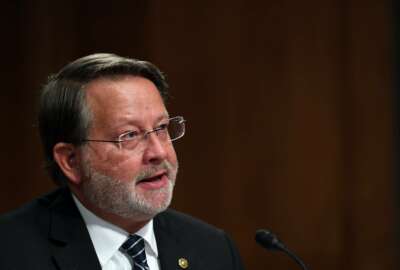

Agencies interested in converting a current or former political appointee to a permanent position in the career civil service must get approval from the Office of...
As agencies continue to staff up and bring new personnel on board, the Office of Personnel Management has a few reminders for those looking to convert political appointees to permanent positions in the career civil service.
Agencies must receive OPM approval before appointing any current or former political appointee to a permanent position in the civil service. This includes anyone who has been a political appointee in the last five years, OPM said Monday in a new memo to agency chief human capital officers.
The guidance mostly serves as a reminder to agencies, and it’s similar to a memo OPM released back in 2018.
Both describe changes to OPM policy since the passage of the 2015 Presidential Transitions Improvement Act, which required the agency to broaden the scope of its political conversion reviews.
Specifically, agencies wanting to convert political appointees to positions in the competitive service, the non-political excepted service, or a job in the career Senior Executive Service need OPM approval.
OPM conducts pre-hiring reviews at all times, but members of Congress, good government groups and others pay particular attention to political conversions in the year leading up to changes in administration.
“OPM takes seriously our responsibility to promote the integrity of civil service hiring,” Kathleen McGettigan, the agency’s acting director, said in a statement. “As is often the case during the transition from one presidential administration to the other, there has recently been elevated interest in political conversions — the hiring of current or former political appointees to permanent positions in the civil service. This guidance reminds agencies of OPM’s authority and agencies’ responsibilities to submit covered hiring actions to OPM for review.”
The guidance also encouraged agencies to develop their own internal processes for reviewing political conversions first before submitting them to OPM’s career staff for approval.
“This allows each agency to confirm for itself that the selection is free of political influence before submission to OPM,” McGettigan wrote. “This agency oversight could be expanded to include proposed appointments to time-limited appointments, even though OPM does not review appointments to temporary positions.”
There are, however, some exceptions to OPM’s political conversion rules. The intelligence community, for example, doesn’t need to seek OPM approval before converting political appointees to permanent positions in the civil service.
“This is because, by law, enforcement of the merit system principles in IC elements is governed by such rules, regulations and directives that the president may prescribe, and the president has, through rulemaking, excluded IC elements from the definition of ‘agency’ subject to OPM’s oversight,” McGettigan wrote. “Nevertheless, IC elements are also required to implement the merit system principles consistent with their statutory authority and as determined by the head of the agency or component.”
Agencies will discuss the political conversion guidance Tuesday at a meeting of the Chief Human Capital Officers Council, a source familiar with the OPM memo said.
Members of Congress have been especially interested in the agencies who have installed political appointees from the last administration to permanent, career civil service positions, a concept also known as “burrowing in.”
Democrats spent much of the last few months trying to block former President Donald Trump’s Schedule F executive order, which they said could have allowed agencies to burrow political appointees into positions previously deemed as career jobs.
President Joe Biden rescinded the order last month, and there are no indications that any agencies formally reclassified career or political employees into Schedule F.
A group of House and Senate Democrats earlier this year asked the Government Accountability Office to help them track instances of “burrowing.”
Data from OPM — at least so far — doesn’t show especially noticeable differences in the number of political conversions when comparing the last two administrations.
Agencies did, however, propose more political conversions during an 11-month period in 2020 compared to a 13-month period between 2016 and Inauguration Day in 2017, data shows.
OPM reviewed 48 pre-appointment conversions between Jan. 1 and Nov. 30, 2020. It approved 24 political conversions, denied five and returned 10. Nine proposed political conversions were pending review as of Nov. 30, according to OPM data.
By comparison, OPM reviewed a total of 46 proposed political conversions in the last year of the Obama administration. It approved 36 conversions, denied six and returned four between Jan. 1, 2016 and Jan. 20, 2017, according to OPM data.
Still, OPM hasn’t finished compiling data about the political conversions it approved, denied or completed during the last two months of the Trump administration. The agency is expected to submit a report to Congress with data from the final two months of the previous administration in the coming weeks.
Copyright © 2024 Federal News Network. All rights reserved. This website is not intended for users located within the European Economic Area.
Nicole Ogrysko is a reporter for Federal News Network focusing on the federal workforce and federal pay and benefits.
Follow @nogryskoWFED

